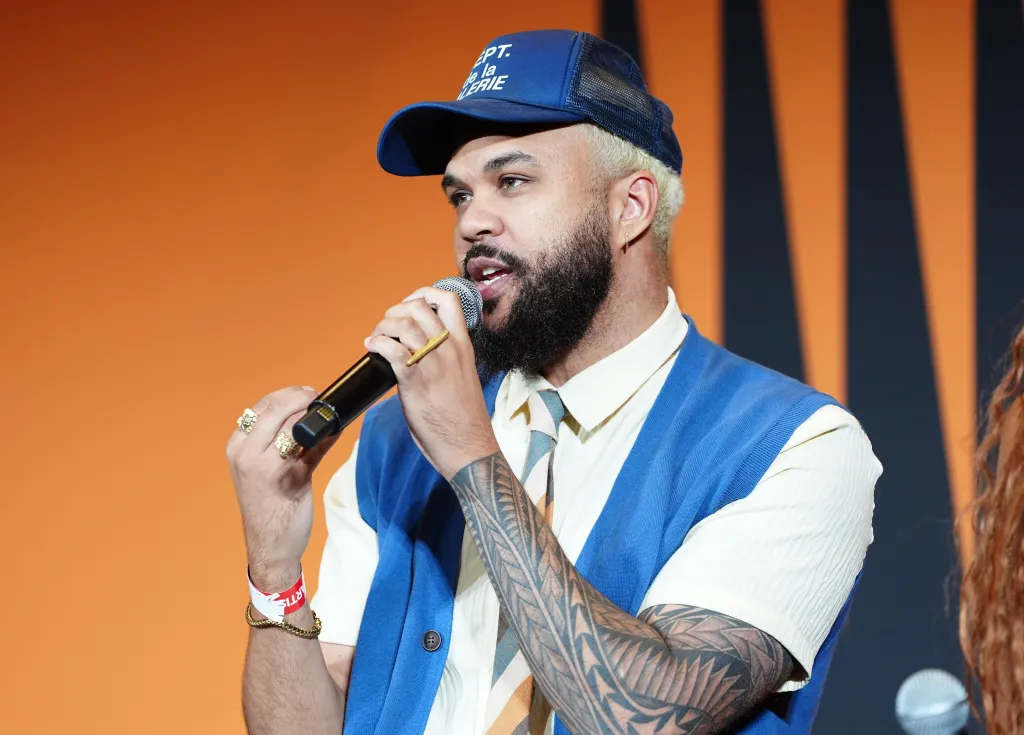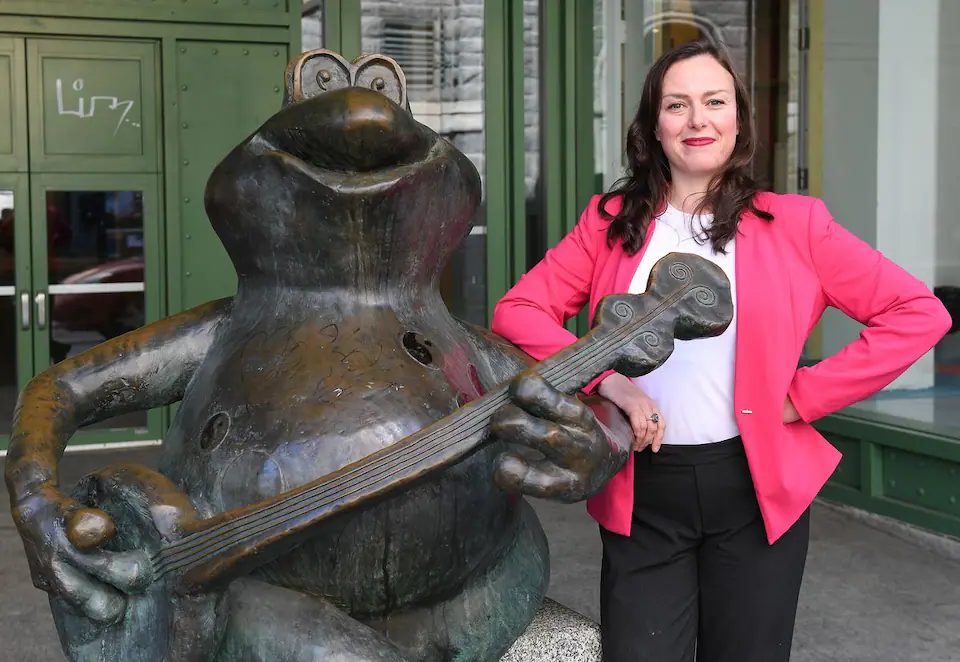
Before the discussion about the future of music and AI between YouTube/Google music chief Lyor Cohen and rapper-singer Jidenna had even begun, striking images filled the screen.
It was the official music video for the Wu-Tang Clan’s latest single, “Mandingo,” every photorealistic frame of which was made with Google AI video generator Veo 2.
“When I saw that, I almost fell out of my chair,” Cohen said at the event Monday night. “I would challenge anybody to say, ‘That’s not art.’ I think it’s absolutely artistic, and it’s incredibly well done. And they’re not alone.”
Jidenna spent the next half-hour detailing his evolution from musical artist to AI-savvy multi-hyphenate, pausing at the beginning to greet Busta Rhymes, Chuck D and Wyclef. The hip-hop legends were among the crowd of a few dozen in a screening room at New York’s recently opened branch of private club San Vicente.
A sizable social following and hits like the Grammy-nominated 2015 track “Classic Man” came during Jidenna’s major-label days. Today, he is charting a decidedly independent course and has thrown himself into the booming realm of computer-generated video.
A direct line can be drawn between the rise of hip-hop and the ascent of AI, Jidenna maintained. “We’re at a point where those of us who may have been marginalized by whatever reason, are taking a tool, and figuring out what we can do with it,” he said. “And just like hip hop, they say it’s not art. Just like hip hop, they say, ‘Oh, that’s illegal. You can’t do that. The models are trained on other people’s data.’ That’s what we call sampling.”
While Google has a clear incentive in promoting AI, the conversation was noteworthy for not tiptoeing around the many worries about technology that are vexing the entertainment business. While there were passing acknowledgements of copyright protection, the perils of deepfakes, and the need for evolved business models, the prevailing message was of the “come to Jesus” variety.
“There’s no way to block this from happening,” Cohen said. “So my thought is to get on our front foot, embrace this moment, let’s believe in the fact that really talented, creative people can take it to the next level.”
Jidenna said plunging into the unknown is critical. “You have to not be afraid of that leap,” he said. And for many of us, that is a very scary moment. But if you embrace it, trust me, I learned everything” through trial and error.
To provide legal context, Cohen called on YouTube Music senior corporate counsel Kevin Montler, who was seated in the audience. Asked for his take on the current state of AI, Montler said, “The tech is ahead of the law. And it’s ahead of where, even within industry groups, both on the tech side, and on the rightsholdolders’ side, we’re not seeing continuity in position. I think everybody’s trying to figure it out.”
Addressing his own take on the legal uncertainty, Jidenna affirmed that artists shouldn’t have their work used to train AI models without consent, or have video generators create unauthorized images based on their likenesses. Still, he agreed with Montler’s point, noting that he attended Stanford University at the same time as OpenAI co-founder Sam Altman. “I do not think that we have the system that’s gonna be fast enough to catch up with tech,” he said.
Responding to charges of AI images too often looking “fake,” he said they are “no more fake than somebody posting the happy days in their life. Social media, to me, is more fake than what I do. But they call it artificial.”
The speed at which AI is evolving was another theme of the talk. Cohen asked about how often the tools change and Jidenna replied, “Every week.” Living in L.A. has enabled him to build connections in the film industry, and he said workers in the industry refer to the first day of the week as “Miserable Monday” because it is when new technology disruptions arrive. “I call it ‘Magical Monday.’” he smiled. “If you don’t embrace change, it’s gonna be miserable.”



